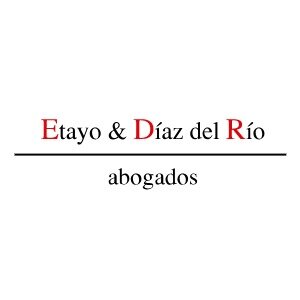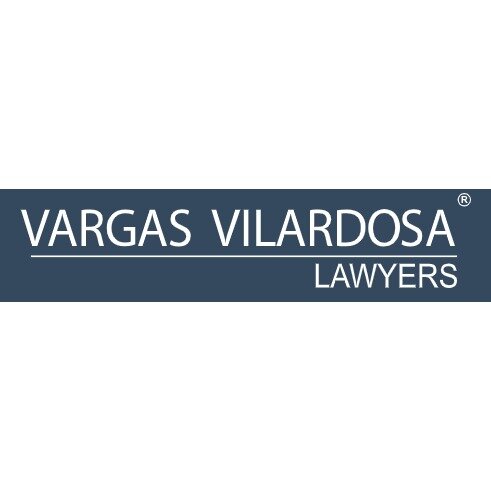Best Renewable & Alternative Energy Lawyers in Spain
Share your needs with us, get contacted by law firms.
Free. Takes 2 min.
Or refine your search by selecting a city:
List of the best lawyers in Spain
About Renewable & Alternative Energy Law in Spain
Spain is recognized as a global leader in renewable and alternative energy. Over the past two decades, the country has made significant investments in solar, wind, and hydropower, backed by supportive government policies. The goal is to transition to a more sustainable energy system and reduce reliance on fossil fuels. Spanish laws regulate how alternative energy is generated, distributed, and integrated into both the national grid and private projects. These regulations also include incentives, licensing requirements, connection obligations, and compliance standards to encourage development while ensuring environmental and safety protections.
Why You May Need a Lawyer
There are many reasons why individuals, businesses, investors, or energy producers might seek legal advice in the renewable and alternative energy sector in Spain. Common situations include:
- Obtaining permits and licenses for installation of solar panels, wind turbines, or other renewable infrastructures
- Understanding contractual obligations when entering agreements with energy suppliers or companies
- Navigating regulatory compliance for safety and environmental standards
- Resolving disputes regarding land use, energy production, or grid access
- Accessing government incentives or grants for clean energy projects
- Dealing with property rights issues when developing on private or rural land
- Ensuring compliance with taxation and feed-in tariff schemes
- Structuring joint ventures or investments in energy projects
- Handling challenges relating to grid connection or technical integration
- Updating business models to align with changing renewable energy laws
Local Laws Overview
Spanish renewable and alternative energy law is shaped by national legislation, European Union directives, and local regulations. Key aspects include:
- Regulation of Electric Sector (Ley 24/2013): Sets the legal framework for electricity generation, distribution, and marketing, including special provisions for renewable sources.
- Renewable Energy Tariffs and Incentives: Various Royal Decrees have established feed-in tariffs and auction systems, providing financial benefits for those generating clean energy.
- Environmental Impact Assessments: Any significant renewable project must meet strict environmental standards, often requiring detailed impact assessments and public consultation.
- Self-consumption (Autoconsumo): Regulations for individuals or communities generating their own energy, including how surplus can be sold back to the grid.
- Grid Access and Connection: Procedures and standards that must be followed to connect renewable installations to the national grid.
- Land Use Regulations: Rules governing the location of renewable projects, especially in rural or protected areas.
- European Directives: Spain implements EU policies aimed at increasing renewable share and reducing carbon emissions.
Frequently Asked Questions
What types of renewable energy are most common in Spain?
The most prevalent types are solar photovoltaic, wind power, and hydropower. Spain is among the top European countries for installed wind and solar capacities.
Can individuals install solar panels on their homes?
Yes, private homeowners can install solar panels, and recent reforms have made the process easier. There are specific permits, installation standards, and rules for selling excess energy back to the grid that must be followed.
Are there financial incentives for renewable energy projects?
Yes. Incentives include tax reductions, subsidies, and feed-in tariffs for both small-scale and large-scale renewable energy producers, although the rules change over time.
Is it mandatory to connect a renewable energy system to the grid?
Not always. Standalone systems are allowed, but grid connection is often required or beneficial for surplus energy compensation schemes.
What permits are needed to start a renewable energy project?
Permits depend on the type and size of the installation. Typically, you will need municipal building permits, environmental authorizations, and grid connection approval.
How are renewable energy producers regulated?
They are subject to both national energy regulations and local environmental and land use laws. Additionally, producers must meet certain technical and safety standards.
What is self-consumption (autoconsumo) and how does it work?
Self-consumption refers to producing your own electricity, mainly through solar panels. Users can use what they generate and, in most cases, sell surplus energy back to the grid under specific regulations.
Do communities or groups have any special options for renewable energy?
Yes, Spain recognizes energy communities which allow groups of people or organizations to jointly invest in and operate renewable energy installations for shared benefit.
What are the environmental regulations for renewable energy?
All renewable projects must comply with national and EU environmental standards, often requiring an environmental impact assessment and ongoing monitoring.
Can foreign investors participate in renewable projects in Spain?
Yes, foreign individuals and companies can invest in Spanish renewable energy projects, subject to the same legal requirements as Spanish entities.
Additional Resources
For further information and support, consider contacting or researching the following organizations and governmental bodies:
- Ministry for the Ecological Transition and the Demographic Challenge (MITECO) - the primary government body on energy and environmental policy
- Spanish National Energy Commission (Comisión Nacional de los Mercados y la Competencia or CNMC) - regulatory authority over energy markets
- Regional and municipal authorities - for local permits and planning information
- Institute for Energy Diversification and Saving (IDAE) - provides resources on renewable project development and grants
- Renewable energy trade associations such as APPA Renovables and UNEF (solar energy union) for industry updates and support
- Local chambers of commerce and renewable energy cooperatives
Next Steps
If you are considering a renewable or alternative energy project in Spain, or are facing legal questions in this field, consider the following steps:
- Identify your goals and the type of project or issue you are facing
- Gather all relevant documentation, including property records, contracts, or technical plans
- Consult the above resources for guidance and initial information
- Schedule an appointment with a lawyer who specializes in renewable and alternative energy law in Spain
- Prepare a list of questions or concerns to discuss during your initial legal consultation
Working with a knowledgeable lawyer can help ensure that your project meets all legal requirements, fully benefits from available incentives, and avoids costly mistakes or disputes.
Lawzana helps you find the best lawyers and law firms in Spain through a curated and pre-screened list of qualified legal professionals. Our platform offers rankings and detailed profiles of attorneys and law firms, allowing you to compare based on practice areas, including Renewable & Alternative Energy, experience, and client feedback.
Each profile includes a description of the firm's areas of practice, client reviews, team members and partners, year of establishment, spoken languages, office locations, contact information, social media presence, and any published articles or resources. Most firms on our platform speak English and are experienced in both local and international legal matters.
Get a quote from top-rated law firms in Spain — quickly, securely, and without unnecessary hassle.
Disclaimer:
The information provided on this page is for general informational purposes only and does not constitute legal advice. While we strive to ensure the accuracy and relevance of the content, legal information may change over time, and interpretations of the law can vary. You should always consult with a qualified legal professional for advice specific to your situation.
We disclaim all liability for actions taken or not taken based on the content of this page. If you believe any information is incorrect or outdated, please contact us, and we will review and update it where appropriate.
Browse renewable & alternative energy law firms by city in Spain
Refine your search by selecting a city.

















